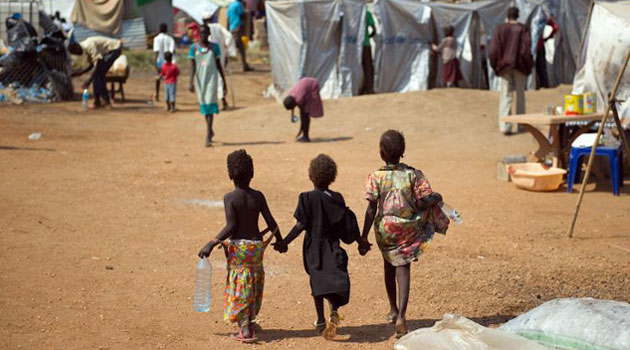NAIROBI, Kenya, Apr 18 – At least 70 per cent of children and young people who experience a mental health problem have not had appropriate interventions at a sufficiently early age.
In an interview with the Capital FM News, psychiatrist and mental health advocate Chitayi Murabula said the conditions include depression, anxiety and conduct disorder, and are often a direct response to what is happening in their lives.
“Mental health problems affect about 1 in 10 children and young people. The emotional wellbeing of children is just as important as their physical health. Good mental health allows children and young people to develop the resilience to cope with whatever life throws at them and grow into well-rounded, healthy adults,” he said.
Depression affects more children and young people today than in the last few decades between the ages of 5-15 years.
Attributing factors of mental disorders in children and young people include sexual abuse, negligence, violence, family separation, malnutrition among others.
Clinically diagnosed conditions include anxiety disorders, schizophrenia, autism, disruptive behaviour disorders etc.
Lack of awareness about mental illnesses is also a hindrance towards acquiring proper treatment as cultural beliefs come into play.
For instance, someone who is deemed to be slow in understanding behaviour and or carrying out their duties etc will be quickly shunned and labelled mad whereas medical attention if sort on time, a clear diagnosis would be made.
“Incidences of children being chained to their beds or trees should be a thing of the past but only if proper awareness is implemented,” stated Dr Murabula.
Dr Murabula noted the need to improve mental health services by increasing the number of psychiatrists which currently stands at 1:420,000, a poor ratio compared to high income countries.
“In line with improving health mental services, programs to help these children cope with the conditions are of essence,” said the medic.
“Each child matures at his or her own pace, and what is considered “normal” in children falls within a wide range of behaviour and abilities. For these reasons, any diagnosis of a mental disorder must consider how well a child functions at home, within the family, at school, and with peers, as well as the child’s age and symptoms.”
Early this month, Kenya joined the rest of the country in celebrating the World Health Day whose theme was “Depression, Let’s Talk where it was revealed that a two in three people are unaware that they are suffering from depression.
According to the latest estimates from the World Health Organization (WHO), more than 300 million people globally are now living with depression.
At its worst, depression can lead to suicide. Close to 800,000 people die due to suicide every year.
Suicide is the second leading cause of death in young people between the ages of 15-29.
“It’s worth noting that 75pc of the 800,000 people who die annually as a result of suicide come from lower and middle income countries,” said Dr Murabula.
In Kenya, WHO estimates that at least two million people (4.4 per cent) suffer from depression as the country is ranked 6th with the highest number of depression cases among African countries.
“These new figures are a wake-up call for all countries to re-think their approaches to mental health and to treat it with the urgency that it deserves,” said WHO Director-General, Dr Margaret Chan.
In many countries, the WHO said, there is no, or very little, support available for people with mental health disorders.
“Nearly 50 per cent of people with depression both in developed and under developed countries do not get treatment. On average, just 3 per cent of government health budgets is invested in mental health, varying from less than 1 per cent in low-income countries to 5 per cent in high-income countries,” stated the WHO.
The health agency also called on governments to increase investment on treating depression.










































